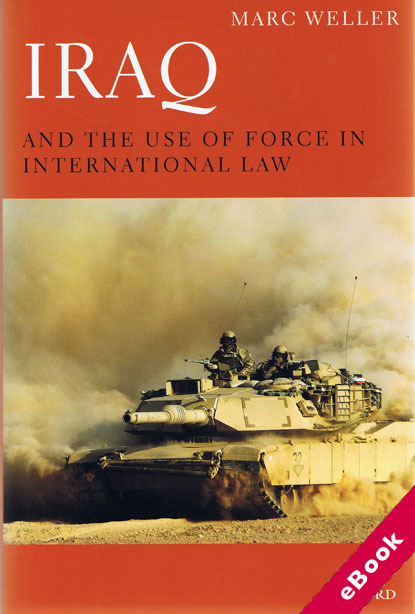
The device(s) you use to access the eBook content must be authorized with an Adobe ID before you download the product otherwise it will fail to register correctly.
For further information see https://www.wildy.com/ebook-formats
Once the order is confirmed an automated e-mail will be sent to you to allow you to download the eBook.
All eBooks are supplied firm sale and cannot be returned. If you believe there is a fault with your eBook then contact us on ebooks@wildy.com and we will help in resolving the issue. This does not affect your statutory rights.
The prohibition of the use of force is one of the most crucial elements of the international legal order. Our understanding of that rule was both advanced and challenged during the period commencing with the termination of the Iran-Iraq war and the invasion of Kuwait, and concluding with the invasion and occupation of Iraq.
The initial phase was characterized by hopes for a functioning collective security system administered by the United Nations as part of a New World Order. The liberation of Kuwait, in particular, was seen by some as a powerful vindication of the prohibition of the use of force and of the UN Security Council. However, the operation was not really conducted in accordance with the requirements for collective security established in the UN Charter.
In a second phase, an international coalition launched a humanitarian intervention operation, first in the north of Iraq, and subsequently in the south. That episode is often seen as the fountainhead of the post-Cold War claim to a new legal justification for the use of force in circumstances of grave humanitarian emergency-a claim subsequent challenged during the armed action concerning Kosovo.
There then followed repeated uses of force against Iraq in the context of the international campaign to remove its present or future weapons of mass destruction potential. Finally, the episode reached its controversial zenith with the full scale invasion of Iraq led by the US and the UK in 2003.
This book analyzes these developments, and their impact on the rule prohibiting force in international relations, in a comprehensive and accessible way. It is the first to draw upon classified materials released by the UK Chilcot inquiry shedding light on the decision to go to war in 2003 and the role played by international law in that context.